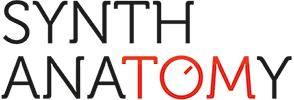Giulioz RdPiano is a new free virtual instrument plugin that accurately emulates vintage SA-synthesis digital pianos from Roland and Rhodes.
The sound of the 1980s was characterized by analog synthesizers and the beginning of digital synthesis. These were the years of the legendary Yamaha DX-7, Roland D-50, and other digital synths.
Digital e-pianos based on synthesis were also in high demand, such as the Roland MKS-20 or MS-80. The Italian developer Giuloz, who brought us the Boss Micro Rack RRV reverb emulation, has also recreated these iconic e-pianos for your DAW.
Giulioz RdPiano
RdPiano is a free plugin that accurately emulates digital pianos, such as the Roland MKS-20, RD-1000, and the Rhodes MK-80 electronic piano.
These vintage e-pianos used the proprietary SAS synthesis (structured adaptive synthesis), a re-synthesis technique. Roland recorded samples from these various instruments (pianos…) at 128 different velocities and then analyzed the waveform changes.
Roland then incorporated this harmonic/velocity sound analysis algorithm in custom chips called VLSI. In 2025, the team of the MAME (Multiple Arcade Machine Emulator), a free and open-source emulator, reverse-engineered these chips and added them to the software.
Giulioz has also done this in the new RdPiano plugin. The new plugin simulates these classics from the 1980s, down to the CPUs and mainboards used in these models. The developer also analyzed the silicon structure of the custom chips used in these instruments to achieve the best sounds possible.
Users can choose between MKS-20 and MKS-80 sounds using the buttons on the interface.
First Impression
I installed it straight away and can say it sounds very authentic and beautiful but pretty buggy. If you like retro e-pianos, you can’t miss it.
Giulioz RdPiano is a free download. It runs as a standalone and VST/AU plugin on macOS (native Apple Silicon + Intel) and Windows. However, some versions cannot produce sound when first loaded due to a bug. To fix this, please change the current patch at least once.
More information here: GitHub



Yes, buggy. And the patches can distort easily. It cannot be used in professional environment.
Hello, author here!
Thank you so much for the review, I’m working hard to add new features and solve the bugs. I just added a simulation of the tremolo and chorus and fixed a bunch of problems in the latest version.
give me this
I just downloaded RdPiano and installed the .component (AU) with just a little fiddling on MB Air 15″ M2, running Sonoma 14.6.1.
It runs fine with Ableton Live 12! However …
WARNING!
When I instantiated the AU in Logic Pro and hit a MIDI key, I got a deafening noise assault in my cans! I mean DEAFENING! My wife in the next room came in and wondered what had happened!
I didn’t manage to slip the vst3 version past the Apple sentry, so I don’t know how it might work in Live.
But the .component needs URGENT attention for the Logic environment, please!
Otherwise, a very cool instrument that I’d very much like to add to my keyboards collection!
/JHS